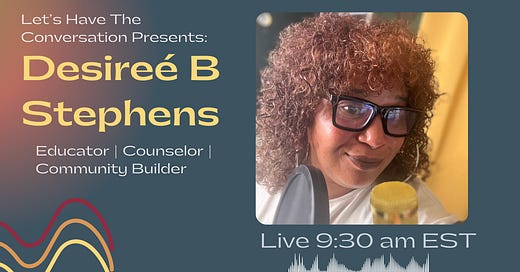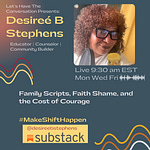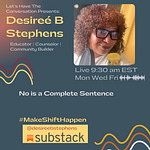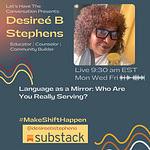Parenting inside of a supremacy culture is inherently about control—teaching obedience, punishing disobedience, and reinforcing hierarchies that mirror the systems that govern our world. But what happens when we choose to disrupt that cycle? What happens when we recognize that parenting is not about shaping children into what the world expects but rather about co-creating a liberated future with them?
Decolonized parenting requires us to rethink everything we’ve been taught about raising children:
How do we move away from discipline rooted in fear and coercion?
How do we nurture autonomy while still guiding and protecting?
How do we raise children who can critically think, advocate for justice, and resist the oppressive systems that seek to mold them into complacency?
These are not easy questions, but they are necessary ones. Because how we raise our children directly impacts the future of liberation.
Supremacy culture is not just present in institutions—it infiltrates the way we relate to one another, including how we parent. From expecting children to perform perfection to enforcing rules without explanation, we see the same pillars of oppression show up in our homes.
“One of the things that we don’t talk about enough is how supremacy culture shows up in parenting. It’s that power-over dynamic. It’s the expectation that children must obey without question, must perform respectability, must not question authority—because questioning authority is seen as a threat, even when it’s coming from a five-year-old. But what happens when we start seeing children as full human beings? What happens when we co-create, rather than control?”
Supremacy culture teaches that power must be enforced, that parenting is about keeping children in line rather than guiding them toward self-awareness, critical thought, and autonomy. But when we start unlearning these patterns, we begin to see that true care is about partnership, not punishment.
Keep reading for a deeper dive into:
✅ The difference between discipline and coercion
✅ How supremacy culture’s 15 pillars show up in parenting
✅ Practical steps to raise liberated, critical-thinking children
If this resonates with you, the full version of this article offers actionable strategies, guided reflections, and interactive tools to help you apply these principles in real time.
Upgrade now and start building a future where parenting isn’t about control—it’s about co-creating freedom.












